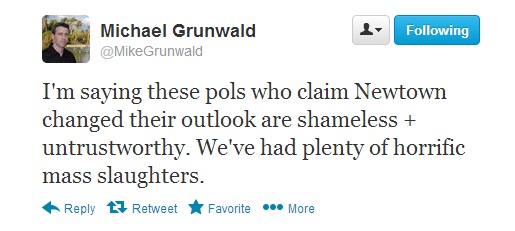Dave Weigel makes a mistake that I’ve heard frequently since NRA CEO Wayne LaPierre’s speech post-Newtown:
But this isn’t an entirely new idea. You probably don’t remember the name of Neil Gardner, a sheriff’s deputy in Jefferson County, Colo. He was the armed guard assigned to watch Columbine High School who usually ate lunch with the students, so he could be in the school.
Wonkblog’s Brad Plumer made a similar error as well in a very interesting post about the research on the effects of armed security in schools:
And what about mass shootings? It’s worth noting that Columbine High School had an armed “community resource officer” on duty the day that two students shot 12 of their peers and one teacher. So armed security guards can’t stop every death. On the other hand, it’s worth noting that the same can be said about some of the gun-control legislation being discussed right now — the federal assault weapons ban was also in effect during Columbine, after all.
I ranted about this on Twitter. The fact that armed security and the federal assault weapons ban did not prevent the Columbine shooting is not a reason for not implementing those policies.
Certainly, it’s useful to examine how such a policy would have impacted past events. But looking at one event, especially a high-profile one, as a way of evaluating a potential policy is a cheap way to score political points. Yes, having armed security at Columbine High School did not prevent that tragedy, but maybe it would have helped prevent the shooting in Newtown or could help prevent a future one. Same with an assault weapons ban. Both conservatives and liberals have been using this type of argument the last few days and it just muddies the water. We need to examine the pros and cons of each argument overall, not how they impacted isolated events.
Now, I happen to be skeptical of LaPierre’s idea. As Plumer writes, armed security in schools may make students feel less safe and hurt learning and it’s unclear whether it reduces crime. That’s a good argument for not putting a cop in every school. The fact that Columbine High School had a security guard is not.
